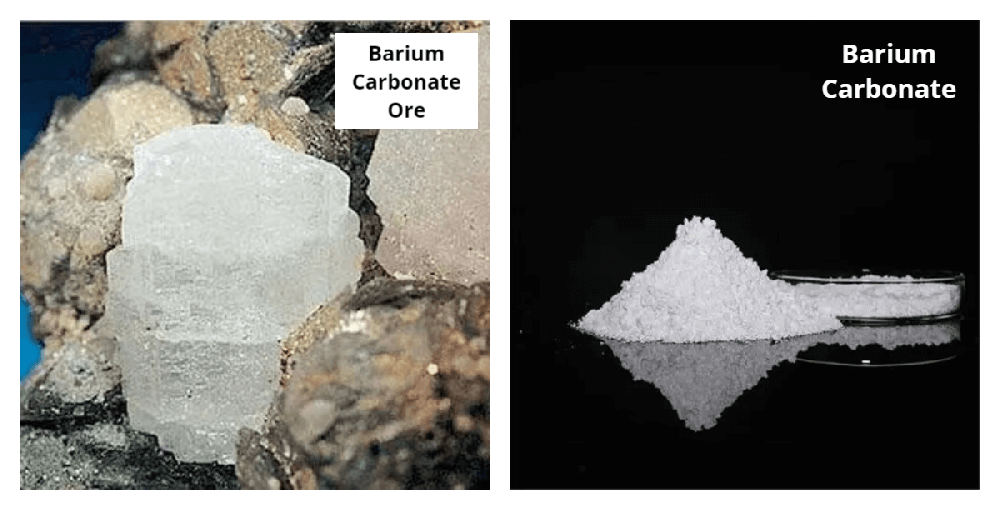For product information and pricing, Chat with sales agent:
or email us : sales@clirik.com
Click links below to see related products.

Barium carbonate, a chemical compound with diverse industrial applications, undergoes a series of meticulous processes to transform raw ore into a refined product. This article explores the crucial steps involved in grinding barium carbonate ore, emphasizing the significance of safety measures throughout the processing chain.

The journey begins with raw material preparation, where barium carbonate ore, often in the form of the mineral witherite, undergoes preliminary processing. Crushing and screening reduce large chunks, facilitating subsequent grinding processes.
Primary grinding is a pivotal stage where the ore is subjected to mills, such as ball mills or rod mills. The choice of grinding equipment depends on factors like ore hardness and the desired particle size distribution.
Following primary grinding, classification processes segregate particles based on size. Classifiers or screens ensure that the material meets specific size specifications, a critical aspect for downstream applications.
Depending on the application and desired particle fineness, secondary grinding may be employed. This step fine-tunes the particle size distribution, addressing specific requirements and enhancing the product's utility.
Periodic sampling and analysis are integral to maintaining quality standards. Monitoring particle size distribution ensures that the grinding process consistently meets specifications, providing a high-quality end product.
Given the toxicity of barium compounds, implementing stringent safety measures is paramount. Personal protective equipment (PPE), proper ventilation, and adherence to safety protocols during grinding mitigate potential health risks for workers.
Compliance with environmental regulations is essential for waste disposal generated during the grinding process. Responsible waste management minimizes the environmental impact associated with barium carbonate processing.
Once the grinding process is complete, the refined product is packaged in suitable containers for transport to end-users or downstream manufacturing processes. Proper labeling ensures safe handling and use.
Processing barium carbonate ore involves a carefully orchestrated series of steps, with grinding playing a central role in refining the raw material. From ore preparation to final packaging, each stage demands precision and adherence to safety and environmental considerations. As industries continue to rely on barium carbonate for various applications, ensuring the integrity of its production processes is key to meeting quality standards and safeguarding both workers and the environment.
Shanghai CLIRIK Machinery Co.,Ltd. has been committed to the field of ultra-fine powder grinding machines for 20 years.
CLIRIK has a first-class manufacturing base with standardized and intelligent production lines.
CLIRIK's professional R&D, sales, installation and after-sales teams have provided door-to-door services to more than 100 countries and regions.
HGM grinding mill: 74-5 micron(200-2500 mesh); D97=5 micron
YGM Raymond mill: 613-33 micron(30-325 mesh); D90=30 micron
CLUM vertical roller mill: 20-5 micron(600-3000 mesh); D50=2 micron D97=4 micron
You can leave a message online or contact CLIRIK directly:
Email: sales@clirik.com
WhatsApp: +8613512155195/+8613917147829
